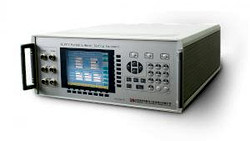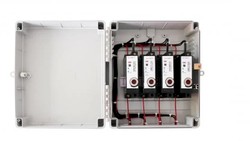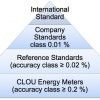This week (KW 29/2022) I stumbled over some interesting news about self-made energy crises.
Load Shedding in South Africa
South Africa has a long history for load shedding. The regular disconnections of complete areas have tradition since about 15 years, The reason behind is, that the state-owned energy supplier (Eskom) hasn't kept up pace with the country development. Between 1961 and 1991, Eskom has completed 14 new power stations.
In the following 32 years, Eskom has completed three power stations. Rumors say, that one of them is still not fully functional. The new Eskom management is working hard on improvement of the situation.
Load Shedding in Pakistan
Pakistan has an actual daily power outage of about 8 hours in urban centers , while rural areas have about 10 hours load shedding. The actual power shortage has crossed 8 GW. The reasons behind are mainly fuel-shortage for the diesel power plants, technical problems and low water level at the dams for hydropower generation.
The power shortage is also not new. In my opinion, it started about 20 years ago with privatizing of power plants and related infrastructure, and by selling these out to foreign investors. Now it's getting worse.
Energy Crises in Europe

Due to EU's sanctions on Russia, all European countries are suffering from a huge rise in energy prices.
Mainly impacted are those countries, which are relying on import of oil and gas. According to the European Commission, switching to coal, oil or nuclear is a temporary measure “as long as it avoids long term carbon lock-in”.
All countries are following these recommendations, except Germany, but I want to keep the article short.
How can Smart Meters help to overcome power shortage?
A widely unknown or ignored fact is, that these meters can be set to a load limit. This means, there is no need for load shedding. Everyone gets limited power. If the current is limited to e.g. 5 A, you can still use 3450 W (230 V, 3 phase), which is sufficient for some light, refrigerator and other basic needs. If you use more, you will be disconnected for a certain time. This is initially 2 minutes. Once you consecutively exceed the limit 3 times, it will be half hour. (Default settings for CLOU smart meters)
At the same time, critical infrastructure like hospitals can be excluded from the load limit.
This solution helps all countries with a proper working AMI remote meter connection. They can set a load limit based on daily forecast. Most European countries have already finished their smart meter rollouts. So they can minimize the risk of load shedding.
Today, the EU came up with a "Save Gas for a Safe Winter" plan. Beside many wishful thinking, there is also a statement which can force the member states to save energy, in case voluntarily saving doesn't work.
In 2014, the European Commission has proposed that 80 % of all users have a smart meter by year 2020. Italy had even a full coverage before 2014.
Other countries with >80 % coverage are Spain, France, The Netherlands, Denmark, Sweden…
Germany, together with the Czech Republic, Greece, Croatia, and Cyprus, has decided against a rollout. The actual smart meter coverage for Germany is 15 %.
I predict, that these countries have no other choice than load-shedding in extreme situations in winter.
Lucky or wise are those countries with a high percentage of installed smart meters.
Conclusion
Try to keep your power grid good maintained and implement smart meters plus the related infrastructure. If you have questions on what we can do to support utilities, please ask us.
We are also interested in your personal opinion and estimation.
Stay safe, and leave us your comment.
Thank you for reading.
Editor's note: This article was originally published in July 2022 and has been updated for comprehensiveness.





All comments are moderated before being published. Inappropriate or off-topic comments may not be approved.